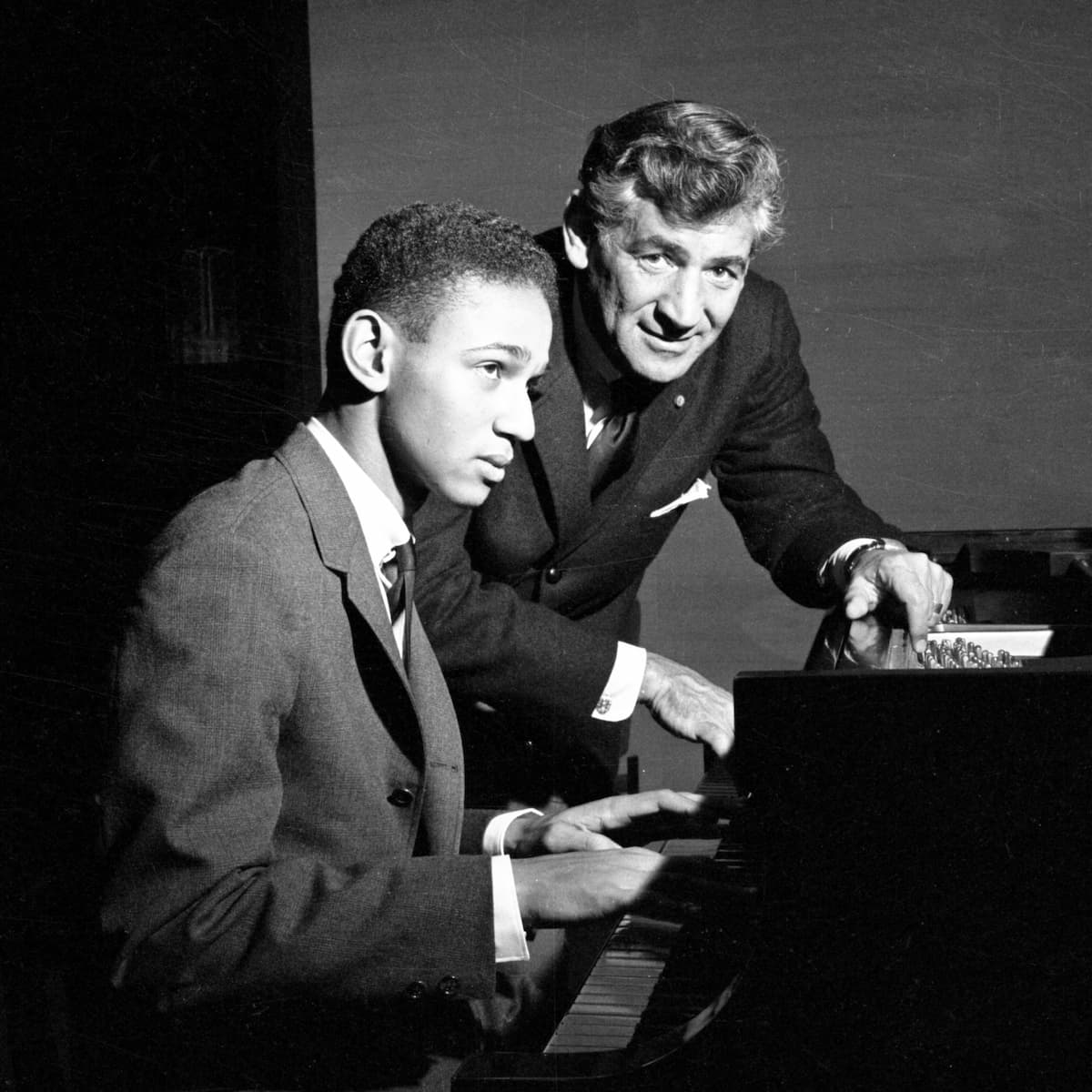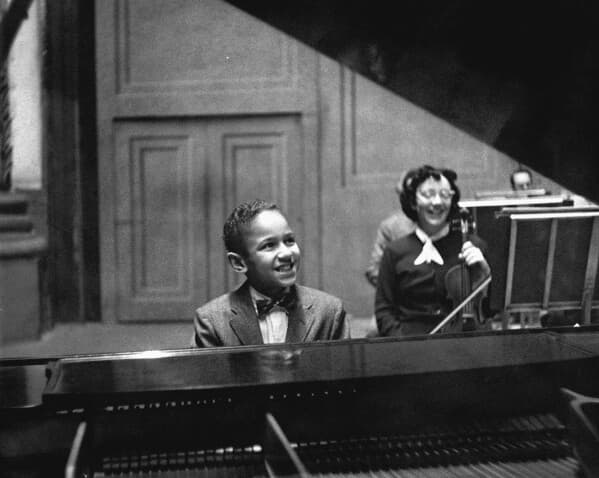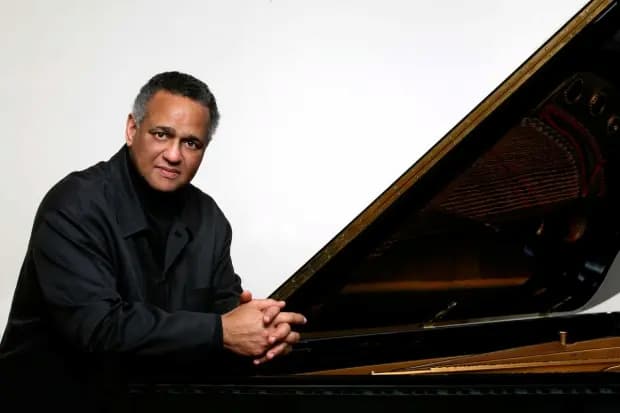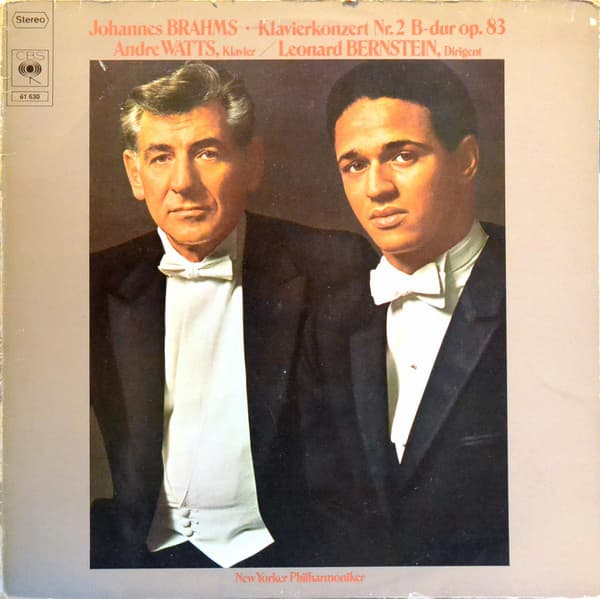Pianist André Watts is known as one of the first Black superstars of classical music. He gained national fame by performing with Leonard Bernstein at the New York Philharmonic on a televised program called “The Young People’s Concert” at age 16. Watts made relatively few recordings and limited his concert appearances, but he always offered an individual blend of bristling virtuosity allied to a singing, poetic sensibility.
André Watts Performs Liszt’s Piano Concerto in E-flat Major
In Germany

André Watts and Leonard Bernstein
André Watts was born on 20 June 1946 in Nuremberg, Germany, where his father, an African-American soldier, was stationed. His mother was a Hungarian refugee and accomplished pianist, and André’s earliest memory is of his mother playing Strauss waltzes on an elegant Blüthner piano. He was first introduced to the piano at the age of four, but didn’t like it. Then his mother bought him a violin and he didn’t like it either. “So, I went back to the piano about age 6.
He took piano lessons from his mother and remembered, “there was not a lot of discipline involved, so it was just fun. I just put the pedal down for a page at a time just to listen to all that sound building up, and rattle around a mile a minute playing everything but the right notes.” In retrospect, Watts was always thankful that he started playing the piano in this rather unconventional way.
Maurice Ravel: Miroirs: No. 2. Oiseaux tristes (Andre Watts, piano)
The Haydn Audition

The young André Watts
The family moved to Philadelphia when André was 8, and it was decided that he should study with a certified piano teacher. Just one year later, he auditioned to play a Haydn concerto with the Philadelphia Orchestra. Competing against 39 other children, Watts took a wrong turn and began playing the opening tune in the middle of the concerto.
He remembers, “I counted the number of bars I had played and the number in the section I was supposed to be playing and caught up with my accompanist.” André was sure that he had lost, but the conductor George Antek, assistant to Ormandy said, “he played well. If he gets lost that’s one thing, but if he can recover like that, it means everything will be fine in the concert.” To his great surprise, he was selected.
André Watts Performs Beethoven’s Piano Concerto No. 4 in G Major, Op. 58
Philadelphia

André Watts
André did have a difficult time adjusting to schooling in Philadelphia. “I was a disruptive student and got kicked out of class often.” When he saw one of his teachers later on, he was told “You were impossible. Everyone else went home and released energy on the streets. You went home and practiced and let it all out in class.” Watts recalls that “when I was young, I was in the peculiar position with my school chums of not being White and not being Black either. Somehow, I didn’t fit in very well at all.”
His mother gave him two pieces of advice that André never forgot. She said, “If you really think that you have to play 125% to a white’s 100% for equal treatment, it’s too bad. But fighting will not alter it. And, if someone is not nice to you, it doesn’t have to be automatically because of your colour.” For Watts, “this taught me when I’m in a complex personal situation, I don’t have to conclude it is a racial thing. Therefore, I think I have encountered fewer problems all along the way.”
Frédéric Chopin: Piano Sonata No. 2 in B-Flat Minor, Op. 35, “Funeral March” (Andre Watts, piano)
Breakthrough

André Watts and Leonard Bernstein
Watts played the Mendelssohn G-minor concerto at 10 and the Symphonic Variations by Franck at the age of 14. Andre’s parents divorced when he was 13, and he lived with his mother, who supported them by working as a secretary and later as a receptionist in a rough neighbourhood. He practiced daily on a piano with 26 strings missing on the second floor of an old house in West Philadelphia. He remembers “an electric fan to combat the heat and a view of the pavement. And gangs; there were Irish, Italian, and black gangs in his neighbourhood.”
“Oh, sure I got beaten up all the time,” he recalls, “but it wasn’t because I was black or a piano player. It happened to everybody.” Once he had turned 16, Watts had won all the auditions for young pianists with the Philadelphia Orchestra. As such, he went to New York and auditioned at Carnegie Hall, but didn’t make the finals. “That was the low point,” he said, “I had no place to go.” However, he discovered that Leonard Bernstein was holding auditions in New York, and he first played for Bernstein’s secretary, then Bernstein, and the rest is history.
For more of the best in classical music, sign up for our E-Newsletter
